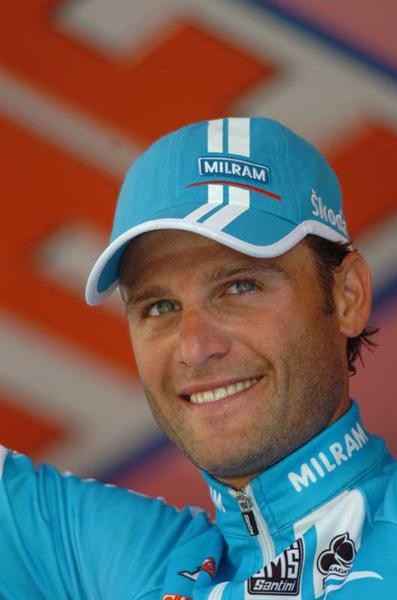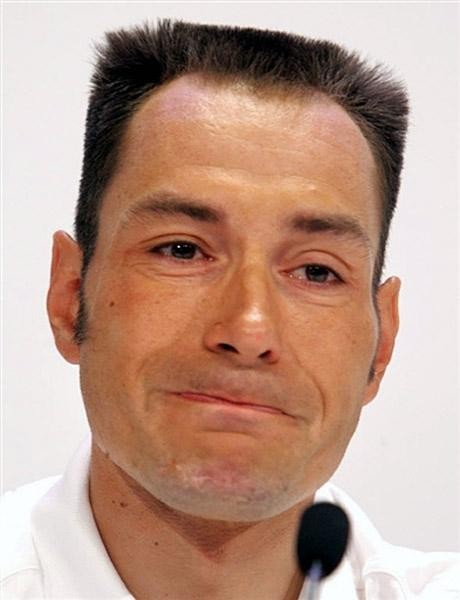Milram 2007: A season of highs and lows
By Susan Westemeyer The sport of cycling had an extraordinarily turbulent year full of highs and...


By Susan Westemeyer
The sport of cycling had an extraordinarily turbulent year full of highs and lows in 2007, and one team which rode the waves from peak to trough was Team Milram. The team sailed on the shoulders of its one man show, sprinter Alessandro Petacchi, who took a massive 17 of the team's 25 wins into the heart of the spectre of doping, which swept through the entire peloton, not sparing the Italian-German squad.
Petacchi, in between wins, spent time under suspension for a 'non-negative' test, while its other sprinter Erik Zabel tearfully confessed to EPO use in 1996. Even the team management came under fire, as team manager Gianluigi Stanga was accused of having introduced a young Jörg Jaksche to doping in the mid-90s.
The team's star sprinter, 'Ale-Jet' Petacchi went into the season with full force after an injury-plagued 2006, winning the GP Costa degli Etruschi for the third year in a row. After being relegated in the first stage of the Volta ao Algarve, he went on to win the third, fourth and fifth stages, as well as the overall title. He was unable to hold the good form for Milano-Sanremo, where he faded to eighth in the final sprint.
Other Milram riders had success in the early season as well. Mirco Lorenzetto brought in his first pro victory in the early part of the year, winning a stage in the Tour Méditerranéen to nab one of only three wins all season by a rider other than Petacchi or Zabel. Former World Champion Igor Astarloa, who had been brought in as a third team captain, finished third in a stage of that same race, for his highest finish in a disappointing season. Over the summer he was diagnosed with toxoplasmosis and missed much of the season.
In contrast to its strong start, Milram's Spring Classics were a bit of a disaster as the team was struck by an unbelievable streak of injuries and illness. With the exception of Marcel Sieberg's second-place finish behind Tom Boonen in Kuurne-Bruxelles-Kuurne, the team failed to score after much of the team succumbed to injury or illness.
Fabio Sacchi and Marco Velo fell victim to the "Slaughter on the Kemmelberg" at Gent-Wevelgem. Elia Rigotto, Volodymyr Dyudya, Alberto Ongarato and Fabio Sabatini also had to miss races due to crash injuries, while Dennis Haueisen underwent emergency stomach surgery. Even "Iron man" Zabel had to miss Gent-Wevelgem and Paris-Roubaix after crashing out of the Ronde van Vlaanderen.
Get The Leadout Newsletter
The latest race content, interviews, features, reviews and expert buying guides, direct to your inbox!
Things began to look up again in April, as Petacchi once again put his stamp on the International Niedersachsen Rundfahrt. He was unable to win all five stages as he did last year, but won the first, second and fourth stages to take the overall win.
The wins gave him confidence heading into the Giro d'Italia, where he proved to himself and to the world that he had fully recovered from his injuries of the previous season. He won the third stage and burst into tears of joy. He followed it up with wins in the seventh , eleventh, eighteenth and twenty-first stages, also taking home the best sprinter's jersey.
Milram falls on hard times
Following the team's highest highs came the team's lowest of lows. It started with Erik Zabel's tearful confession which understandably was met with consternation by his team. His future with the team appeared to be in jeopardy, although finally an agreement was met to let him stay. He then went on to win two stages in the Bayern Rundfahrt.
But worse was to come. In mid-June, three 'non-negative' tests from the Giro were announced and one of them was Petacchi, who had shown traces of Salbutamol, an asthma medication. Although he has an exemption to use the medication, his levels were above the legal limit for the drug, and the team was forced to suspend him the end of June until his case could be reviewed by CONI, causing him to miss the Tour de France.
A further blow was dealt to team management when Jörg Jaksche told the Spiegel magazine that Stanga had introduced him to EPO while at Team Polti in 1997. Stanga denied the charges, but the damage had been done.
With Petacchi absence, the team wasn't able to accomplish much in the Tour. Sieberg wore the red numbers of the most aggressive rider for one day, and Zabel was able to claim "his" green jersey for one day, but it gained no stage wins during the Tour.
The Vuelta was more successful, mainly due to Petacchi's return to the peloton. Zabel took one stage and Petacchi two in a row. The speedy Italian then closed the season on a high note, winning Paris-Tours.
The season's turmoil wasn't over, though. The decision to keep Zabel wasn't finalized until November, after he had indicated the possibility of returning to T-Mobile. And in a bigger change, the team announced that it had bought out the contract with general manager Stanga and that business manager Gerry van Gerwen would become the new manager, with the team license changing from Italian to German.